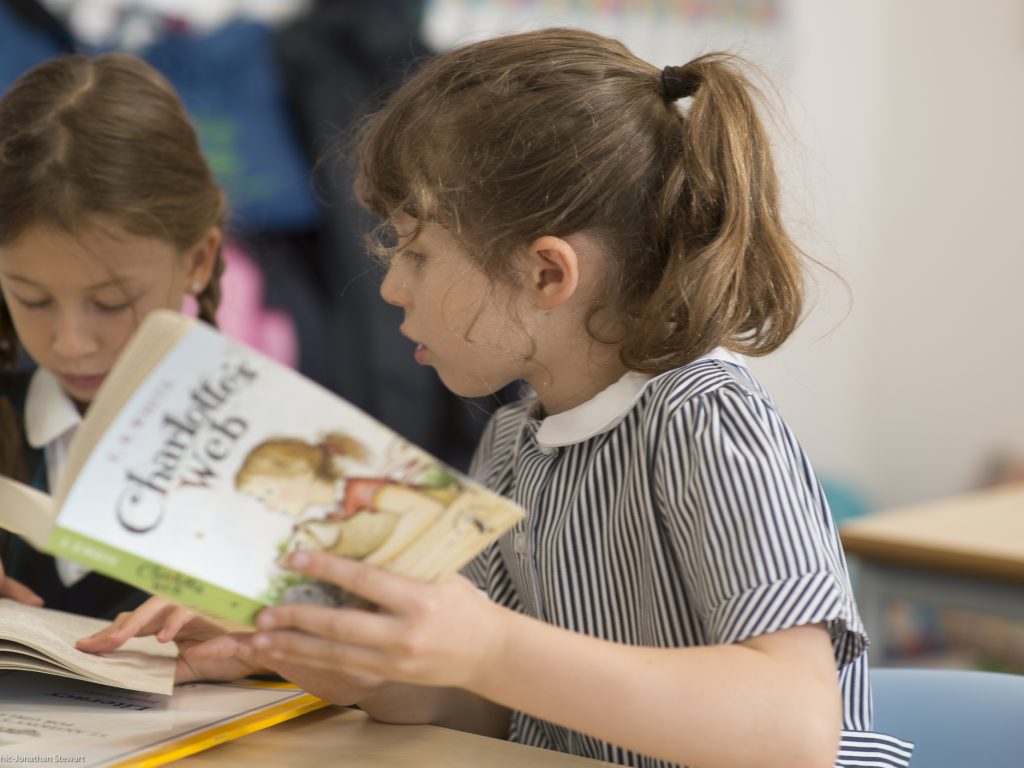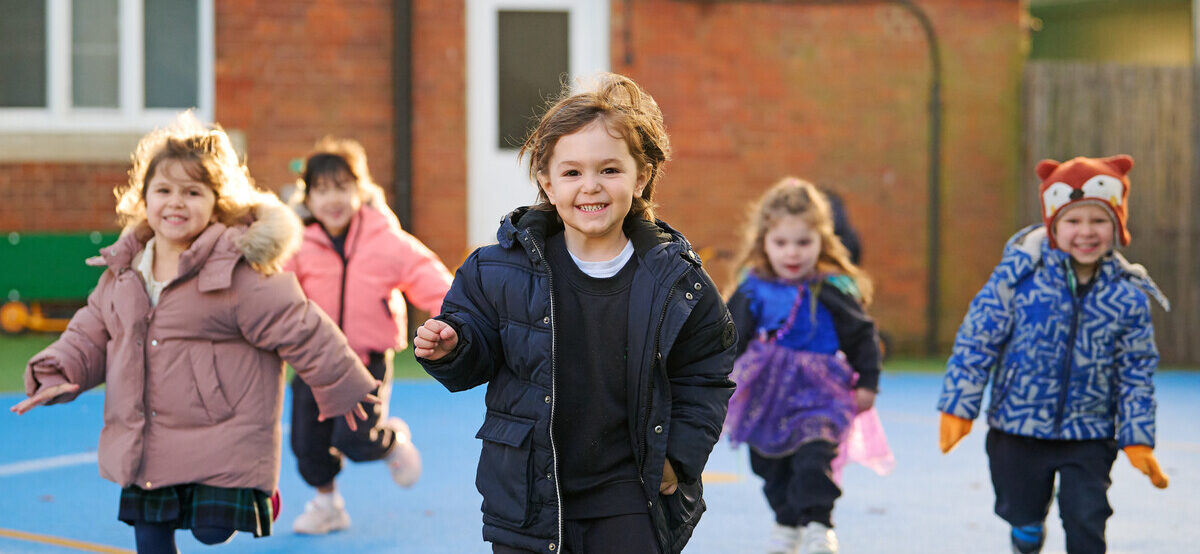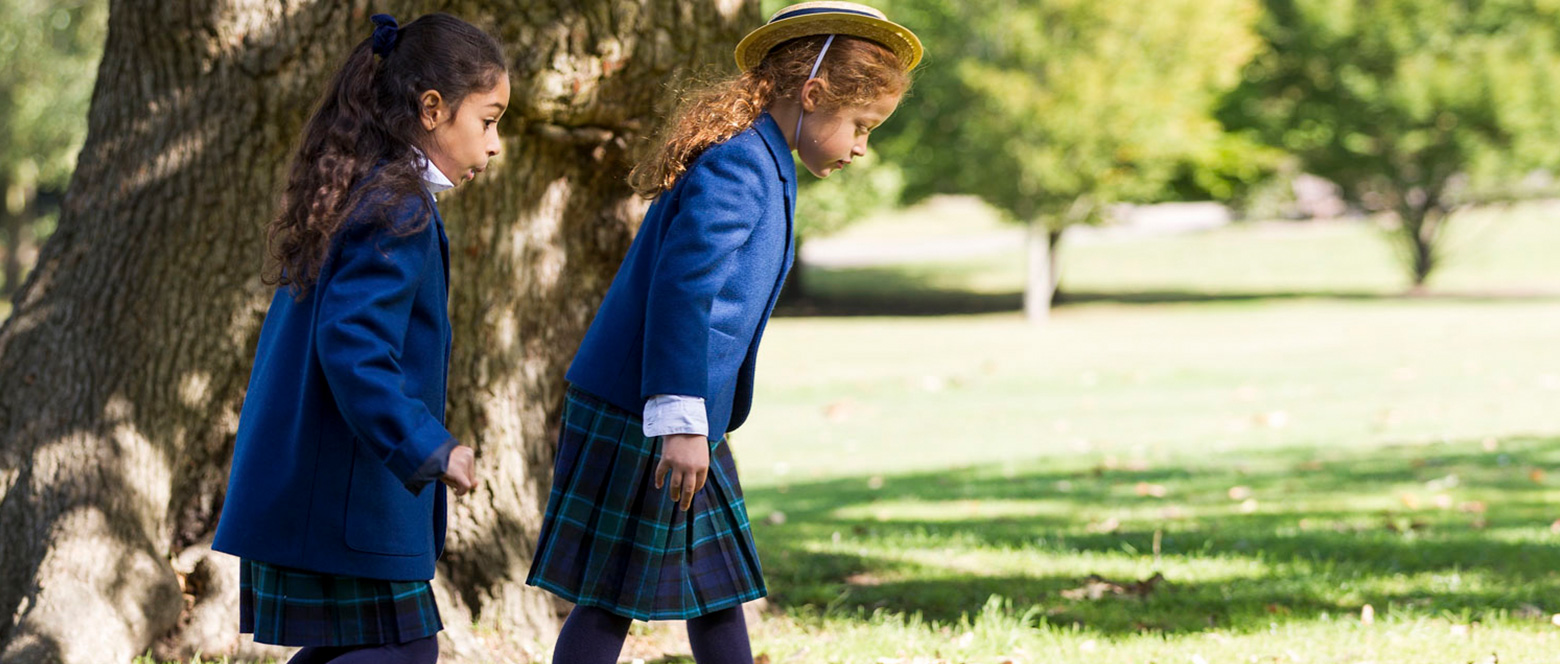Headteacher’s Blog: Creating Independent Learners
23rd September 17

The arrival of a new Reception cohort this term once again delighted and amazed me. Each year I seem to forget just how young our children are when they begin full-time, formal education – some turning the age of four just days before the start of the school year.
These young ladies have enrolled with us to be educated in academic subjects, languages, the arts, and sport; however, as teachers, we recognise that our duty to educate goes far beyond the curriculum.
A full and broad education cannot be achieved by simply imparting knowledge and facts to see how much children can regurgitate these details when required. A true education is an education of the whole child: an exposure to experiences which will equip pupils with the life skills needed to be self-sufficient and successful learners.
On entry to school, children must learn how to function as an individual within a much larger group. This begins with the promotion of independence and the development of self-help skills.
Structure and routine is essential in the journey to independent learning. When exercises are repeated daily, they form routines which then enable young children to complete simple tasks such as managing their belongings without the need of adult assistance. Organisation is also key. The layout of our Reception classroom has been carefully considered to promote independence in our early learners. Resources are easily accessible and labelled with names and images so that the children can self-select activities and return them following the completion of the task. This combined with the promotion of a ‘have-a-go’ attitude and high adult expectations results in young minds very quickly taking ownership of their learning.
Early independence translates into the development of key learning skills in later years. Our teaching style and curriculum approach is based around the understanding that deeper learning is achieved when children discover for themselves.
In our older year groups, exploratory and investigative, cross-curricular projects require skills of research and enquiry to answer questions such as: ‘How have Ancient Greek discoveries and inventions contributed to the modern world?’ In maths, new concepts are introduced and then reinforced with independent investigation to prove or challenge a mathematical conjecture. This style of teaching moves away from the ‘spoon-fed’ over scaffolded approach which more often than not, results in shallow, surface level learning.
The leap from functioning independently in a Reception classroom, to leading your own learning within a history project does not happen by chance. Adult modelling and guided practice is necessary to build confidence and develop a ‘can do’ attitude. Our girls are regularly reminded that there is no such thing as ‘I can’t do it’, but rather, ‘I can’t do it…yet.’ New concepts within our maths curriculum are taught through teacher led guided practice and then consolidated with independent practice once the child feels confident enough to attempt the exercises alone. Visual representations are close to hand to support the child in their understanding until they have mastered the new learning.
As tempting as it may be to carry out basic daily tasks for your child, perhaps due to time constraints or simply because you want to show them care, allowing them some autonomy can be far more beneficial and is fundamental to the development of key life skills. The transition to senior school will be challenging not only in the sense of what they are being asked to achieve academically, but also in that they are stepping into a world where they are increasingly required to make decisions without your guidance or assistance. Investing time and effort into the development of practical life skills is just as important as, and will significantly contribute to, your child’s academic success.



